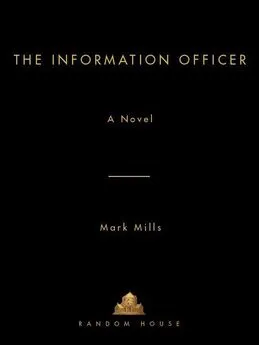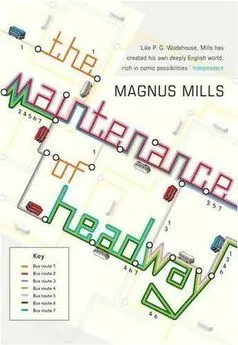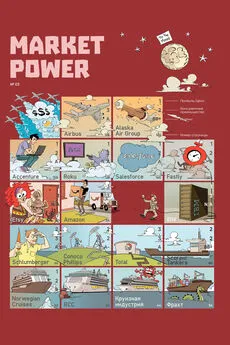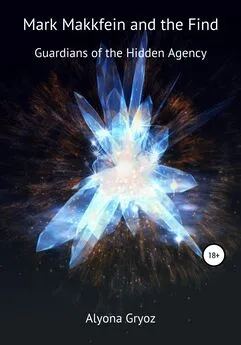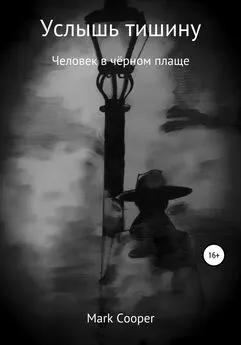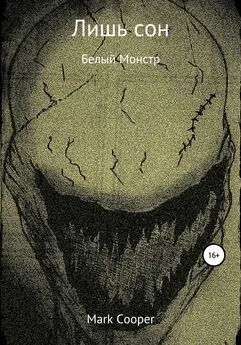Mark Mills - Amagansett
- Название:Amagansett
- Автор:
- Жанр:
- Издательство:неизвестно
- Год:неизвестен
- ISBN:нет данных
- Рейтинг:
- Избранное:Добавить в избранное
-
Отзывы:
-
Ваша оценка:
Mark Mills - Amagansett краткое содержание
Amagansett - читать онлайн бесплатно ознакомительный отрывок
Интервал:
Закладка:
‘Why didn’t you come to me with this?’
‘It was Sunday, I didn’t want to bother you.’
He was safe now, but it wasn’t over yet. Milligan would have the last word. He always did. Hollis could see him working up to it as he rounded his desk and settled into his chair.
‘I don’t like you, Hollis. Can’t say I ever have. And it’s not ‘cos you’re a weasely know-it-all little prick.’ He paused for effect. ‘It’s ‘cos I know what you are.’
Hollis felt the blood drain from his cheeks.
Milligan smiled. ‘That’s right. You think I’d have them dump you on me and not check you out? I know people, don’t think I don’t.’ He began playing with a letter-opener, twisting the point into the palm of his hand. ‘Hell of a cover story you New York boys came up with,’ he said, laying the sarcasm on thick. ‘Damn near fell for it, I did.’
Hollis was helpless. Anything he said would be shot down in flames. Milligan mistook his silence for fear.
‘Don’t worry, it stays in this room. Last thing I need is the good people of East Hampton knowing there’s a crooked cop on the force.’
‘Yeah, one’s enough for any town.’
Thankfully, the words died before they reached Hollis’ lips. It would have meant the end. He didn’t care about the job, but he was damned if he was going to jeopardize the investigation, even if it did mean taking abuse from a hypocrite. It was well known that the fortunes of the Milligan household had experienced a marked upturn during Prohibition.
‘Go on,’ said Milligan, ‘clear out.’
Hollis stopped at the door and turned. ‘It’s not true. What you heard about me.’
‘Now how did I know you were going to say that?’ smirked Milligan.
As Hollis crossed the squad room, Bob Hartwell shot him a sheepish glance.
Hollis entered his office and pushed the door shut behind him. He shed his jacket, reached for the mug of cold tea on his desk, but thought better of it. He didn’t want to sit, he didn’t want to stand; he didn’t know what he wanted to do.
The breeze through the open window rattled the blind against the frame. He wandered over, peering down through the slats at the street below. A few people came and went, entering and leaving the Post Office, which occupied the ground floor of the building. Across the way, a dog cocked its leg against the wheel of a parked car.
Cursed.
It would pursue him for the rest of his life.
The crooked cop.
It had tracked him down, sniffed him out, even here. Why should it ever let up?
It was so ridiculous. If people only knew the truth.
But that wasn’t the way things worked. Once tarred with the brush of scandal there was little to be done to allay their suspicions—not even a full exoneration could do that—some small splinter of doubt always remained lodged in their brains. His parents had been no different. Not that he blamed them; he had rubber-stamped his own guilt when he’d signed up to the lie: a detective second-grade looking for a quieter life on a country force.
Milligan was right. As a cover story, it stank. With the passage of time that much had become evident, like so many other things. It was clear to him now that he should have stood and fought, gone down fighting.
As the memories crowded in on him, he smiled at the absurdity of it all. Making a stand on the hoary issue of police corruption was one thing, but he could at least have chosen one of its grander battlefields on which to lay down his career. For Christ’s sake, there were any number to choose from. But no, he in his wisdom had chosen to impale himself on the blunt dagger of black market gas ration stamps. It hadn’t been easy, but he’d still managed it.
The scam was well established and widespread. Ration stamps filched wholesale from local Price Administration offices were sold on to garages and gas stations for a few paltry cents apiece. The profits were enormous, though, because of the huge scale of the operation. People were involved at all levels, Hollis knew that. Yet he’d still been shocked when a snitch dropped him the name of a precinct detective from the 17th.
The snitch, a pickpocket who worked the Sunday museum crowds, was looking for a break. Well, he got one—a snapped neck in an alleyway at the edge of the Gashouse District.
When Hollis visited the dead man’s girlfriend she went at him with a knife, accusing him of murder. It was a while before he figured she was right. In mentioning the pickpocket’s name to the Captain back at the precinct he had effectively signed the man’s death warrant.
He went to Gaskell with his suspicions, ignoring the Lieutenant’s advice to let the matter drop. A few days later, a batch of stolen ration stamps showed up in Hollis’ locker. When word came through of a couple of lowlifes ready to testify to his involvement in the scam, Hollis knew he was lost.
Whether Gaskell was in on it from the start, he never found out. One thing was clear though, the Lieutenant had never forgiven him for going straight to Beloc at the Homicide Bureau with his theory on the Chadwick case. He wasn’t a team player, said Gaskell, never had been, never would be. The offer of a role on a provincial force—ostensibly to avoid an unseemly scandal—was their way of shutting him up and clearing him out. Turning it down hadn’t even been an option at the time.
Hollis forced his thoughts back to the Wallace investigation, but even that denied him any consolation. Wherever he turned he was confronted with his own eagerness to believe in some sinister plot. What did he really have to go on? The earrings, the raised toilet seat, the nervousness of the maid, the visit paid to Lillian Wallace by her ex-fiancé a month before her death—each and every one of which he had chosen to interpret in its darkest possible light.
He was driven into the chair behind the desk by the weight of the realization: any investigation that existed was entirely of his own invention. He had brought it into the world, breathed life into it through an act of sheer will. He had wanted it to exist, and it had duly obliged.
There was a light knock at the door.
‘Yes.’
It was Hartwell. ‘I swear to God,’ he said, ‘one day…’
He was angry, uncharacteristically so. Hollis stared at him, unable to match the outrage Hartwell felt on his behalf.
‘This is for you. She called while you were with him.’
Hollis took the piece of paper. Verity Brandon. The name meant nothing to him.
‘She said she’s with the Medical Examiner’s office.’
He remembered now—the nameplate on the front desk at the County Morgue, her failure to offer him a glass of water. What did she want?
‘Tom,’ said Hartwell, ‘is something up?’
‘Up?’
‘I don’t know…’
‘Nothing’s up, Bob.’
‘Okay,’ he said, then left the room.
Hollis felt a little bad. It was probably nothing to worry about, but he could still recall Hartwell watching him from afar the day of the funeral, just after his conversation with Penrose.
He reached for the phone and asked the operator to put him through to the morgue in Hauppauge. She answered on the second ring.
‘Suffolk County Medical Examiner’s Office.’
‘Mrs Brandon?’
‘Miss.’
‘It’s Deputy Chief Hollis, from East Hampton.’
‘Ah, yes. Wait a minute, please.’ He could hear her searching through some papers. ‘I have it here somewhere…a strange request…I mean, we get them sometimes, but they’re rare. I just thought you should know.’
‘What kind of request?’
‘Dash it,’ she said.
‘Miss Brandon…’
‘Someone has asked to see the autopsy report on that poor girl who drowned. A member of the public. It’s their right, you know, we can’t stop them.’
‘Yes, I know.’
‘I told him he has to wait a month.’
‘Who?’
‘I have his name here somewhere.’
‘Conrad Labarde,’ said Hollis quietly.
‘Excuse me?’
‘Conrad Labarde.’
There was a silence on the other end of the phone. ‘Well, yes,’ she said, ‘I think that was his name.’
‘Best to be sure though.’
‘Of course. Like I say, I have it here somewhere.’
Seventeen
Gayle Wallace had swum in the pool, taken a bath, washed and dried her hair, and all but finished her breakfast when Manfred stepped gingerly from the house on to the terrace.
‘Christ, it’s bright.’
‘You look dreadful,’ said Gayle.
‘Thanks.’
‘Worse than I’ve seen you in quite a while.’
Manfred picked up her discarded sunglasses and put them on. ‘Better?’ he asked.
‘Much.’
Manfred dropped into a chair and poured himself a cup of coffee from the jug.
‘It’s cold,’ said Gayle.
‘It’s coffee.’ He took a gulp, grimaced. ‘Justin stayed late.’
‘I know.’
‘We didn’t keep you awake, did we?’
‘I don’t mind. You play well when you’re drunk…even if it is Dinah Shore.’
‘There’s nothing wrong with “Shoo Fly Pie and Apple Pan Dowdy”.’
‘Not if you have your head buried under a pillow.’
Rosa appeared with some fresh toast and hot coffee.
‘Thanks, Rosa,’ said Manfred, ‘you’re a life-saver.’
Rosa smiled, then left.
‘So what did you end up deciding?’ asked Gayle.
‘What do you think?’
‘It’s going ahead.’
‘Father grew pretty adamant after you went to bed.’
‘I’m not against it, Manfred. It’s just that it seems a little…’ She couldn’t find the right word.
‘I know.’
‘I understand how important it is to you. I do.’
‘It’s hardly going to be a riotous affair. It never was. Far from it.’
Over dinner the previous evening, the conversation had turned to a sensitive subject, one they’d all been dodging for the past couple of weeks: that of the house party arranged months before and set to take place the following weekend.
It had never been in question that Manfred would one day make a move into politics—that decision was taken on his behalf while he was still wet from the womb—but no one had anticipated the ease with which he would navigate the course charted for him from birth. At prep school he had excelled himself, surpassing even their father’s expectations. He was captain of the varsity soccer and baseball squads, secretary of the Student Council, chairman of the Student Deacons and editor of the school newspaper, the Phillipian. These accomplishments heaped up with little or no apparent effort on Manfred’s part, and their father used to say that in this lay Manfred’s greatest achievement. For people mistrusted overt ambition, it threatened them, obliged them to take a stand for or against you.
There was only one thing more important than winning, and that was appearing not to care about winning. It was a credo that had been instilled in them from an early age, an article of faith vigorously contested by Lillian, silently accepted by Gayle, but dutifully observed by Manfred. And it had served him well, both at Andover and Yale.
It wasn’t until he went to university that Gayle actually witnessed Manfred in action. She was present in the mahoganypaneled hall when he got to his feet as Captain of the Yale Debate Team to deliver his summation speech in defense of the resolution: An oppressive government is more desirable than no government.
He opened by stating that he was a little mystified by his rival speaker’s arguments in favor of no government, as he had it on good authority that the fellow was actively seeking a position in government on his graduation. Delivered with a sly smile, his tone devoid of any malice, this won him a large laugh and proved to be the final nail in the other man’s coffin. Manfred had already argued a difficult position with a compelling mix of conviction and crowd-pleasing humor.
Читать дальшеИнтервал:
Закладка:

